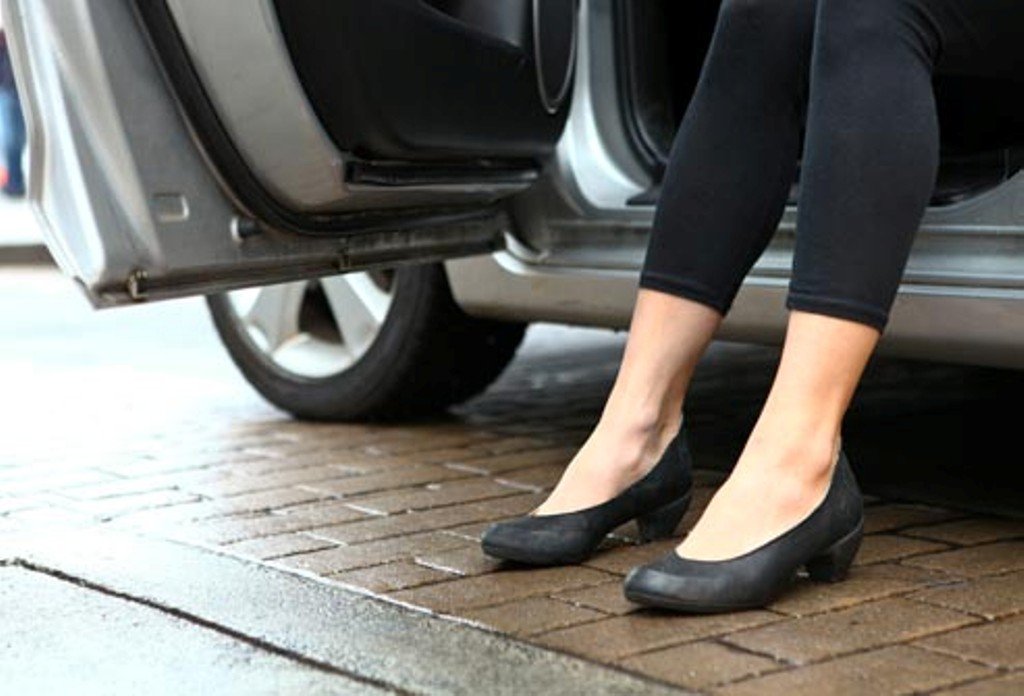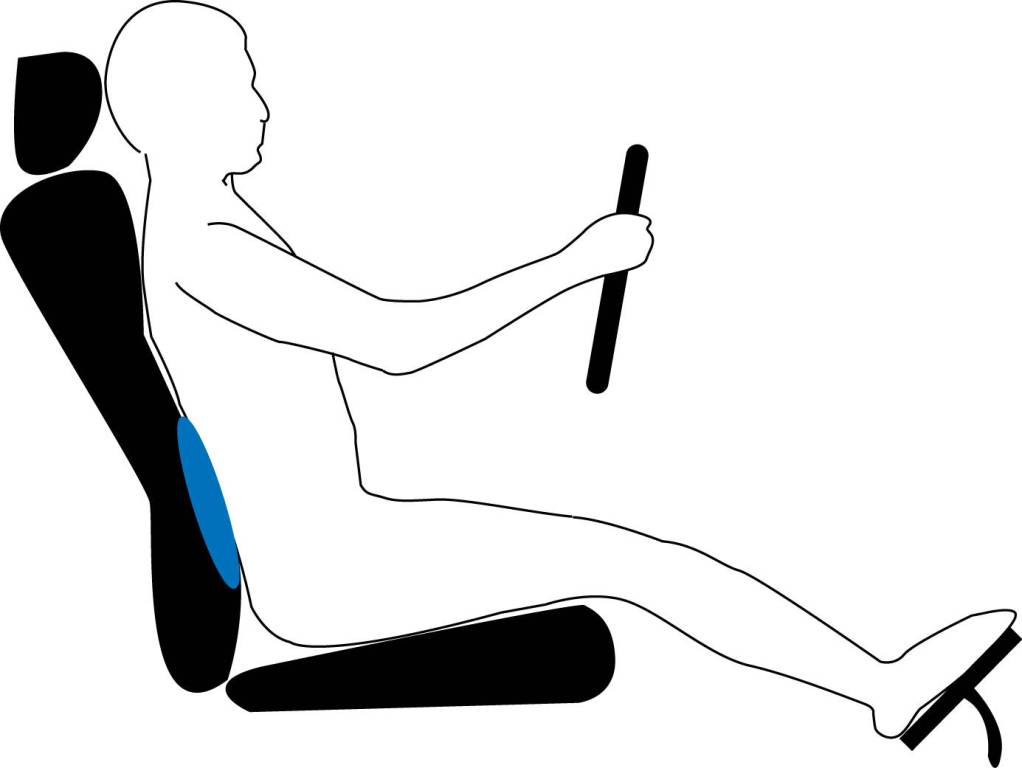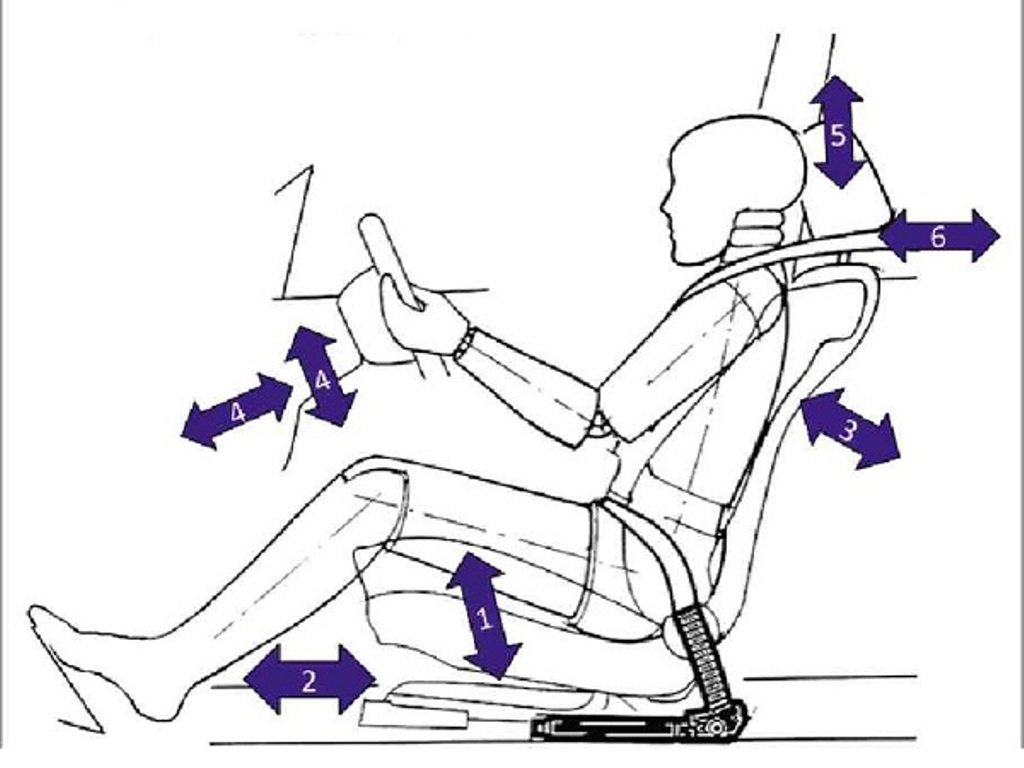Getting the seating position right is very important before you start driving for any journey. An uncomfortable seating position will keep you distracted and won’t help you concentrate better while driving. A wrong seating position is not only wrong in terms of safety but will also strain your neck and spine. If you tend to long journeys or even city driving for that matter, a comfortable seat will ease in your journey right from the start.
Heres a quick guide to adjust your seating position before beginning a journey.
The Ingress and Egress

You need to be seated first and then pull your legs in the car when sitting inside. To get out, you need to go back in the reverse order, with legs out first and then getting up. This makes sure you don’t struggle to get in and out with the car.
Adjust Back Support

Once you are seated with your legs towards the pedal, recline your seat a little to prevent sitting with a straight back. The seat needs to fill the gap in the curvature of your lower back; otherwise you will have excessive strain on your lower back muscles. If the gap persists, try to fill it up with a small pillow or a folded t-shirt. Adjust seat head rest so that it covers till the top of your head. Head rests are designed that way to minimize whiplash, especially in a rear end collision, and do not remove them on the pretext of better visibility, which some folks tend to do.
Adjust Your Seat Gap

Once your back is comfortable and you feel relaxed, it’s time to adjust the gap between you and the steering. The seat should be close enough that you can completely depress the accelerator, break and clutch and the gear lever should easily be in your hand’s reach. Your knees should be bent and have decent under thigh support, while your elbows should be relaxed and a little bent. Keeping your hands straight will only tire your hands. Your hands and shoulders need to be in a relaxed position when seated.
Sitting too close to the steering wheel will restrict the movement of your hands. You cannot reach up to other controls nor will you be able to turn your steering wheel properly. While sitting too far will keep your hands locked, and you will restrict your movements. In a time of collision, the impact is directly transferred to the body causing extensive injuries.
Rear View Mirrors Should Be Visible
With the correct seating position, you should be able to see the rear view mirror effortlessly. The rear view mirror should give you the view through the rear window. While the wing mirrors (ORVMs) should be able to show you a little rear end of your car and the lane to side of your car. Adjust the wing mirrors till you can see easily the lane at a glance without having to twist your neck excessively.
Don’t Sit Too High
The correct height of your seat is when you can see the road easily without the steering wheel hampering your vision. You should be able to see the road ahead without at a distance. The problem with being too high is that you can see the front of your car easily, but don’t see the road ahead at a distance. Obviously, you also cannot anticipate trouble from a distance and are more prone to accidents. You need to see the instrument cluster at a glance easily, while it does not obstruct your vision from the road.
If you are a tall person, make sure there’s a fists gap between your head and the roof. If you are a short person, you should adjust the height of your seat, if your car provides with that option or could use a pillow or a booster seat to give you the needed raise.
Use The Tilt Steering
Most manufacturers provide tilt steering as standard. The tilt steering will allow you to adjust the height or will let you bring it front or push it back. Some steering wheels also come with both the options. You should adjust your steering upwards, if the steering touches your knee and is making it difficult to manoeuvre, or push it up if it sits too low for you. While travelling long distances, you can use this feature to change the steering position to avoid fatigue, without having the necessity to stop. Also remember to hold your steering wheel in the 9 and 3 position like that on a clock. This will give you the optimum grip, and will not obstruct the airbag in case if it has to deploy.
Use Child Seat For Infants
Even though the law has not been mandated child seats as yet, it is very important for the safety of the infant. The car seats are designed to accommodate full sized adults and will render little safety for the child. A child seat can easily be strapped to the rear seats and comes with its own seat belt. Refer to your car’s manual to know how to strap the child seat to your car seat. Make sure you buy a child as per the height of your child and is an investment for your child.
Don’t start your journey, unless you are comfortable with your seating position. It only takes a matter of seconds to do it and is more of a onetime adjustment if you are the only driver. Always remember to strap yourself with the seat belt no matter where you sit in the car. Manufacturers are providing seat belts for rear passengers as well, so don’t ease out with the seat belt. It is cool to be safe.




